By KATHY CHU And TREFOR MOSS
CLARK, Philippines—The new front line in rooting out fake medicine is an elusive one. This bustling call-center hub north of Manila hosts an army of phone operators pitching goods and services. Among the offerings, authorities allege, are counterfeit drugs.
In one call center raided by Philippine police Friday for alleged counterfeit drug sales, officers say they found a product manual that schooled operators about Viagra and other medicines, a script telling customers they would “receive the highest standard of pharmaceutical care,” and a handwritten ledger detailing feedback from U.S. callers. “He said the last pills he received were fake,” read one entry from late 2013 reviewed by The Wall Street Journal.
“It looks the same [as any other call center]—but it’s different,” said Chief Inspector Jay Guillermo of the Philippine police’s cybercrime group, standing in the call-center office, which was festooned with dollar signs strung from the ceiling and posters urging operators to “Keep calm and sell more.”

The center’s Filipino manager, Ging Caballero, confirmed he had run the facility for 18 months, but otherwise declined to comment. The call-center owner was absent during the raid and couldn’t be reached for comment. Neither person is accused of wrongdoing.
The failure to make arrests was disappointing, said Leigh Wadeson, an intelligence analyst for pharmaceuticals giant Pfizer Inc., who flew to Manila for the raid. Still, “disruption is what this is all about,” he said. “Any prosecutions that happen later are a bonus.”
Friday’s raid highlights the challenges in the battle against counterfeit drugs, where call centers represent the latest front.
As increasing numbers of people order and renew prescriptions online and over the phone, counterfeiters—like legitimate sellers—are turning to call centers for customer service. That has brought the action to the Philippines, the world’s biggest employer of call-center operators—most of them offering legitimate services.
Like their legitimate counterparts, operators selling counterfeit pharmaceuticals take orders, renew prescriptions, answer questions and try to sell more products. Often, they make commissions from the sale of the drugs; they may not know they are pitching counterfeit products, experts say.
A representative of the IT & Business Process Association of the Philippines said the association was unfamiliar with any cases of call centers involved in the marketing of counterfeit goods.
Fake drugs are expected to generate $95 billion in global sales this year, up 26% from $75 billion in 2010, according to the Center for Medicine in the Public Interest, a New York-based research group partly funded by the pharmaceutical industry. In many developing countries, where people are struggling to afford quality medicine, counterfeit drugs account for about 30% of brand-name pharmaceutical sales, compared with 1% in developed markets, the center found.
Common counterfeits include erectile-dysfunction medicines Viagra, made by Pfizer, and Cialis, from Eli Lilly & Co. Counterfeiters also make pills to treat malaria and the AIDS virus. Fake pills often contain a small amount of active ingredients, but some have also been found to contain arsenic, boric acid, floor wax and brick dust, pharmaceutical companies say.
Drug companies say they are investing heavily to tackle the problem. Globally, a high of 1,488 people were arrested in 2014 for counterfeiting, theft and diversion of drugs, a 13.5% increase since 2011, according to the Pharmaceutical Security Institute, which was established by the security directors of 14 major drug companies. Incidents of pharmaceutical crime and large-scale seizures of fake drugs have also been rising in recent years.

“If you take out the call centers, then you may be able to affect delivery of the drug,” said Pfizer’s Mr. Wadeson.
Counterfeiters may open call centers in one country and locate production and websites advertising the drugs in other countries, making it hard to track and prosecute criminals.
Most of the websites traced to the Clark call center, for instance, appear to be hosted in Eastern Europe and the U.S., while products purchased from it were likely made in India and China, Pfizer said its research showed.
Limited resources mean authorities often have to rely on pharmaceutical companies to supply evidence needed to take action.
Raids don’t always turn out as planned. In 2012, one Philippine raid was foiled because the call center stored its information in a virtual drive that was beyond the reach of local authorities. Nobody was charged, according to the Philippines’ Criminal Investigation and Detection Group in Cebu, which conducted the investigation.
Pfizer has assisted police with four call-center raids, including Friday’s, Mr. Wadeson said, but the company is unaware of any resulting prosecutions.
Friday’s raid came after months of investigation. Pfizer learned the Clark call center was recruiting agents to sell pharmaceuticals, and identified more than 100 websites advertising brand-name drugs that linked to it, according to Ken Gamble, executive chairman of the Internet Fraud Watchdog, which consulted for Pfizer. Pfizer obtained samples sold by the center of a product labeled Viagra, which the company said it determined to be counterfeit.
Staffers at the center Friday night said it employs roughly 100 people, who work in shifts. Of the 35 people present on Friday night, most in their late teens or early 20s, none was selling pharmaceuticals.
As police officers rifled through their workstations, some call center workers grew tearful while others looked bewildered.
“I only started working here last month,” said Rob Dizon, who left another call-center job in Manila because he wanted to return to Clark, his hometown. “It’s the same as all the other call centers I’ve worked in.”
Mr. Dizon said he sold payday loans to people in the U.S. and knew nothing of other activities.
Scripts for peddling drugs were found on the premises. “Our company only uses licensed physicians,” ran one sales pitch. “Rest assured you are receiving the same medicine as you would at your local pharmacy.”

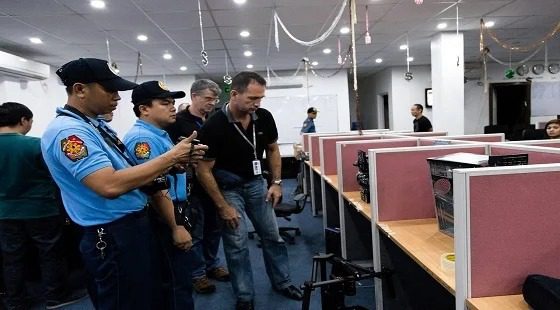

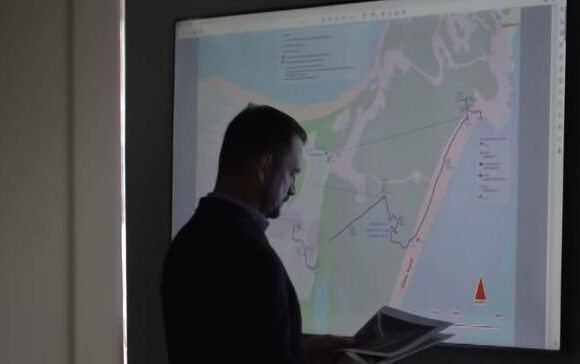
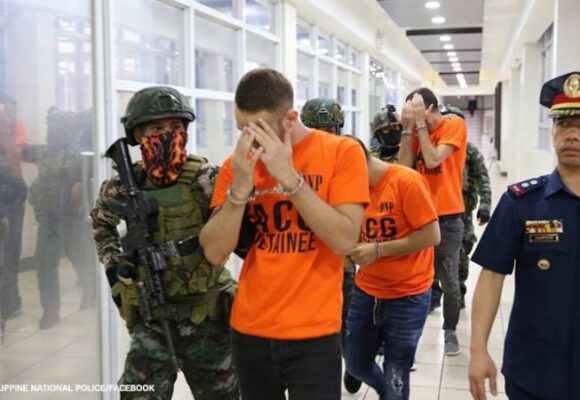
 Philippines National Police
Philippines National Police  Californian Association of Licensed Investigators
Californian Association of Licensed Investigators  NSW Police Force
NSW Police Force 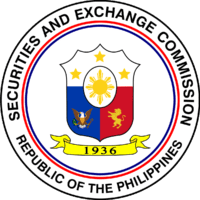 Philippine Securities and Exchange Commission
Philippine Securities and Exchange Commission 
